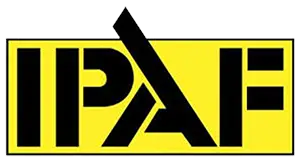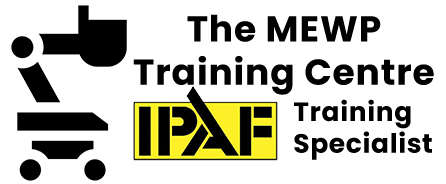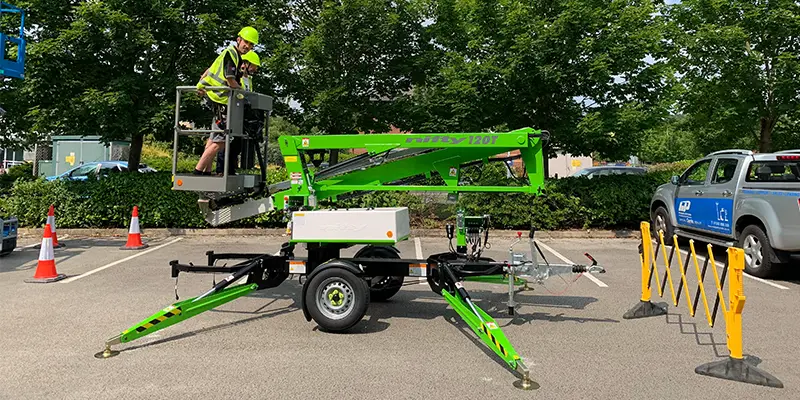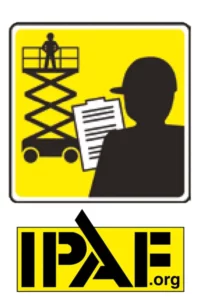IPAF Load/Unload Course
The IPAF load / unload course instructs an operator and/or driver in the correct safety procedures for the loading, unloading and securing of machinery prior to or following transportation by road.
Certificate on completion.

Course entry criteria: In addition to the general course entry criteria, all applicants must have satisfactorily completed a recognised Operator’s course and should hold a valid Operator licence for the relevant categories of plant (e.g. MEWP, forklift, dumper) OR the employer must provide written evidence of competency of plant operation before starting the
course. Applicants should also hold a current driving licence for the type of vehicle to be loaded or the employer must provide written evidence of the candidate’s familiarisation with the vehicle.
- Course length: One day
- Certificate on completion
Course Objectives
Aim: To instruct the Operator in the correct safety procedures for the loading, unloading and securing of plant machinery prior to or following transportation by road.
Objectives: Upon completion of the course, candidates will be able to:
• Safely load, unload and secure machinery using the appropriate equipment onto a suitable vehicle ready for transportation on a public highway.
• Link methods of work to legal requirements.
• Identify associated hazards and apply effective control measures to prevent accidents.
Theory: What the candidate should know:
• The pre-use and maintenance checks to be carried out prior to starting work.
• The correct and safe method for operating, loading, unloading, positioning and securing ready for transportation of a specific machine or machines.
• The correct capacities, limitations and safety procedures to enable safe operation.
• The correct selection of vehicle relating to the different types and combinations of machines to be transported.
• The correct selection, inspection and use of securing and ancillary equipment.
It is recommended that, following successful completion of the course, mentoring takes place. This involves the candidate working with an experienced driver.
Course Structure
- Introduction: Facilities and housekeeping aim and objectives, IPAF Health & Fitness statement, language and literacy, IPAF Documents, IPAF other courses.
- Accident Statistics: Consequences of an accident, most common load / unload incidents, top 5 incidents by location, incident type by accident outcome, incidents by machine type, incidents involving walking a MEWP and a delivery driver. Health and Safety knowledge quiz.
- Types of Vehicles: 4×4 with trailer, 1.5t van, 7.5t beavertail, 26t rigid, 40t articulated.
- Vehicle Inspection: Vehicle inspection, types of ramps, PPE and PFPE
- Vehicle Position: Things to consider, hazard identification including risk assessment in different locations, positioning on the public highway, overview of potential hazards.
- Inspection of the Load: Inspection of the equipment to be loaded.
- Loading the Vehicle: Preparation prior to loading, vehicle suspension and support jacks, lowering of the ramps, adjusting and positioning the ramps, edge protection, safe working at height, access and egress, safe use of winch, other considerations, snatch block, safety clips, load unload procedure.
- Positioning the Load: Axle weights, the lever principle, axle weight calculation, positioning the load.
- Securing the Load: Responsibilities, securing the load, ratchet straps, terminology, specifications, load securing chains, lashing capacity, inspection, load binders, restraint required, anchorage points, general guidance, angle of lashings, guidance for scissor and boom type machines, legislation, spot what is wrong.
- Final Checks Before Travel: Vehicle height, machine canopies, housekeeping including overhang.
- Offloading Handover and Collection: Risk assessment and vehicle positioning, documentation, handover, machine damage.
- Summary
- Theory Test: 30 multiple choice questions. Pass mark 24/30
- Practical session and assessment: The practical session will put into practice all elements of the theory session. It will include demonstration and practice whilst adhering to current legislation, standards and industry guidance and conclude with individual assessment of all delegates.
- Course review: Should a candidate not achieve the required pass mark on the theory test, they will be able to take part in the practical session, however, they will not be awarded LOAD until having successfully completed the training on a different day.


